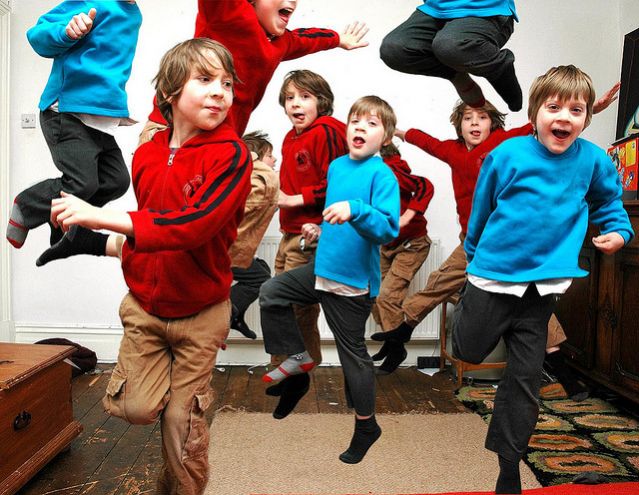ADHD
Social Challenges of Children With ADHD
How ADHD symptoms can affect children’s friendships.
Posted April 1, 2015 Reviewed by Devon Frye

For children, the most difficult part of having attention-deficit/hyperactivity disorder (ADHD) is often the social challenges it causes.
Rejected and Friendless
According to Betsy Hoza and her colleagues, more than half of children with ADHD are widely disliked by their peers. This means that when researchers ask kids to confidentially name the classmates they like most and the ones they like least, kids with ADHD get few “like” votes and lots of “dislike” votes.
Fifty-six percent of children with ADHD have no reciprocated friendships, which is almost twice the number of typical children without friends (Hoza et al., 2005). Even when kids with ADHD do have friends, these friendships tend to be of lower quality and less stable than those of typical children. A longitudinal study (Normand et al., 2013) found that over a six-month period, one out of four children with ADHD lost their friend, while only about one out of ten typical children had their friendship end.
Children with ADHD have substantially worse social skills than other children, according to ratings by parents, teachers, and observers. Experimental studies show that children with either the hyperactive or the inattentive form of ADHD can experience rejection within hours of meeting unfamiliar peers (Hodgens, Cole, & Boldizar, 2000).
Social Skills Deficits in Kids with ADHD
What is it that children with ADHD do that’s so off-putting to their peers? The nonstop activity, impulsive actions, and more frequent aggressiveness of children with the hyperactive or combined types of ADHD are obvious sources of annoyance to peers. They are more likely than other children to argue and start fights.
But children with the inattentive form of ADHD can also have social problems. They may appear withdrawn or not interested in others. They may also make social blunders due to a lack of awareness of others’ feelings or difficulty managing their own emotions.
Normand and his colleagues observed the behavior of both 7- to 13-year-old children with ADHD and comparison children while playing competitive and cooperative games with a friend of their choosing. Compared to other children, during the competitive game, the children with ADHD were more likely to break rules and act bossy. During the cooperative game, they made more self-serving suggestions.
Focusing on the Bright Side
And yet, I have a special place in my heart for kids with ADHD. They are often very creative and passionate about their interests. Their energy and zest can be very appealing. Their rapid leaps from topic to topic can be entertaining or even thought-provoking.
To help these children navigate the social world, we need to address the specific barriers that prevent them from connecting with their peers. I’ll talk about these in the next post.
Related Posts
Social Challenges of Children With ADHD (part 2)
Is Your Child Inviting Rejection?
Growing Friendships blog posts are for general educational purposes only. They may or may not be relevant for your particular situation. You’re welcome to link to this post, but please don’t reproduce it without written permission from the author.
© Eileen Kennedy-Moore, Ph.D.
References
Hoza, B., Mrug, S., Gerdes, A. C., Bukowski, W. M., Kraemer, H. S., Wigal, T., & Arnold, L. E. (2005). What aspects of peer relationships are impaired in children with Attention-Deficit/Hyperactivity Disorder? Journal of Consulting and Clinical Psychology, 73, 411-423.
Hodgens, J. B., Cole, J., & Boldizar, J. (2000). Peer-based differences among boys with ADHD. Journal of Clinical Child Psychology, 29, 443-452.
Mikami, A. Y., (2013). Attention-Deficit/Hyperactivity Disorder and the Challenges of Social Exclusion. In C. N. DeWall (Ed.) The Oxford Handbook of Social Exclusion (pp. 228-237). New York: Oxford University Press.
Mikami, A. Y. (Feb. 2011). Friendship coach: How you can be a friendship coach for your child with ADHD. Attention. http://www.chadd.org/Membership/Attention-Magazine/View-Articles/Friend…
Sourciss, M. M., Maisonneuve, M., & Normand, S. (Winter 2015). Friendship problems in childrens with ADHD: What do we know and what can we do? Perspectives on Language and Literacy, 29-34. http://prisme.uqo.ca/upload/userfiles/files/Winter%202015%20Soucisse%20…


